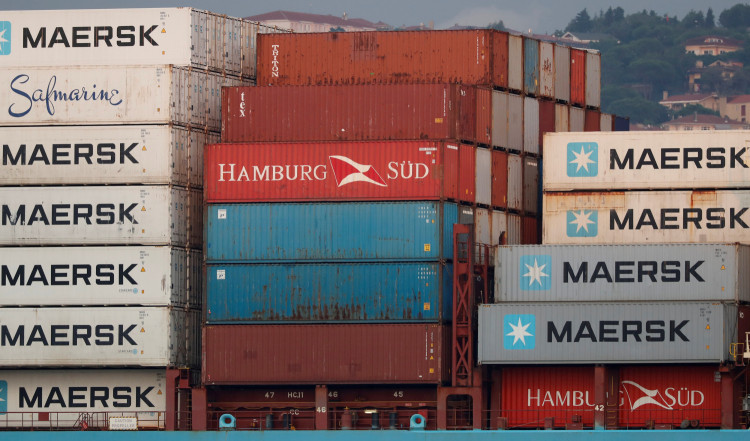Soren Skou, the CEO for A.P. Moller-Maersk A/S which is the largest shipping company from Copenhagen, warned that the U.S. economy will suffer more than the rest of the markets worldwide if the global trade war ravages on.
Whatever fallout that may arise from the trade tensions could easily be blown out of proportion in the United States, Skou said. If the tit-for-tat rounds of tariffs could dampen the global annual trade growth by 0.1 to 0.3 percent, the United States will suffer about 3 to 4 percent decline in its trade, the CEO estimated.
The CEO is in a unique position to speak about how the escalating trade war will impact the global economy according to Bloomberg. Maersk transports about 20 percent of the consumer goods across the world. The company focuses its shipment services between Europe and Asia, hence, does not see itself at the receiving end of the US-China trade war. Maersk has in fact posted a 4 percent increase in its transactions in the second quarter.
Skou, however, is cautious if the tariffs extend on consumer goods. This would mean that consumers will most likely be at the receiving end of increasing costs because of tariffs. When this happens, consumers' demand may decrease as they will think twice before making their purchases.
Importers from the United States have also begun considering diversifying in Vietnam, in Indonesia, or other parts of Asia. This may also increase the competition in the market that Maersk used to dominate.
Meanwhile, a separate report from Bloomberg presented a possibility that Chinese GDP will be unaffected by the mounting US-China trade war. No matter how the trade conflicts aggravate, the Chinese government can juggle different sectors to meet its growth targets, the article stated.
China's resilience to foreseen impact from the trade war relies on how its government manages its local debts.
Its national government has direct control over how its GDP growth rate is set. Targets are always estimated with consideration of the country's overall social and political objectives. So, if trade war strains the country's private sectors, the government can increase loans to its local or public industry for them to come up with activities and programs that will compensate the loss inflicted by its private industry.
In effect, the damage that higher tariffs bring will not reflect on China's economy. The damage, instead, will appear in the form of a rapid rise in debt that can also be interpreted as a rise in GDP since the local industry will need more debts to achieve the growth target.






